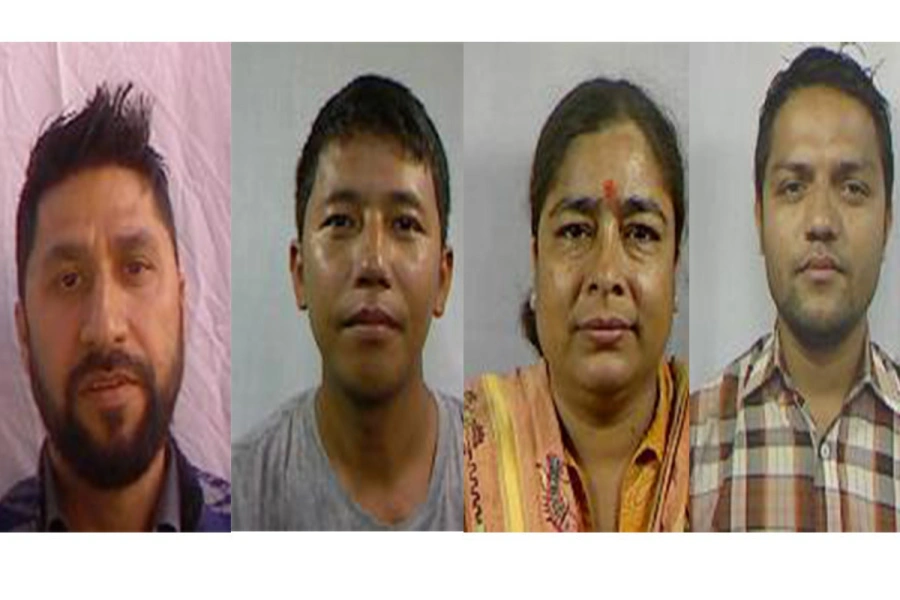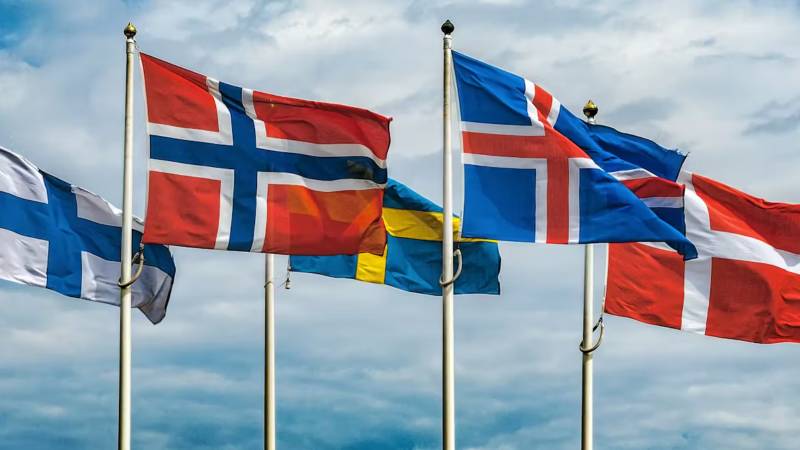Who are the beneficiaries of this new-founded political system in the small Himalayan nation?
In their seminal work "The Communist Manifesto," Marx and Engels astutely observed that the executive of a modern state essentially acts as a committee, primarily serving the interests of the bourgeoisie. Remarkably, even in today's era, this notion retains its profound relevance. Now, as we examine the executive of contemporary Nepal especially after the abolition of monarchy, the question that looms large is how applicable are these words of Mark and Engles?
Once upon a time, there lived a husband and a wife. One unfortunate day, the wife suffered from a rare and life-threatening disease. The husband kept a constant vigil outside the emergency room in despair, while the doctors operated on his wife. After what felt like an eternity to the husband, a doctor approached him with the news that his wife would pull through and recover. Happiness lit the husband’s face; however, the doctor went on to explain that his wife would face challenges with bowel movements while walking, and her genitalia would require constant attention due to a bacterial issue, rendering her unable to engage in sexual intimacy. After a brief moment of silence, the doctor smirked and continued, “I am kidding, your wife’s no more!”
Three NCP leaders at equilibrium in power-sharing

The wit in this concise joke by Slavoj Žižek, the Slovenian philosopher, resonates deeply with Nepal's context. And there are few questions that come to mind and demand our attention. As a nation, are we afflicted with an ailment that, though curable, might ultimately lead us to our downfall, given the scarcity of those with selfless interests? Would we as citizens find relief in witnessing the downfall of the entire nation than suffer in silence? If not, how do we navigate the fine line between patriotism and chauvinism amidst the current state's degradation? These queries compel us to reflect on our society’s condition and the choices we must make.
After a decade-long civil war that led to the abolition of the 240-year-old monarchy, Nepal proudly declared itself a federal democratic republic in May 2008. The country marked this milestone with widespread celebration, as the bells of freedom resonated throughout the land, fostering hopes for both prosperity and development. As Nepal enters its fifteenth year as a secular republic entity, a significant task emerges i.e. the need to comprehensively evaluate and grasp the nation's transformation over this period. This examination should encompass various dimensions, including the political ideologies shaping its governance, the trajectory of economic advancement, and most importantly, the contentment and well-being of its populace.
“The bourgeoisie has torn away from the family its sentimental veil, and has reduced the family relation to a mere money relation.” Quoting Marx and Engels once again, I delve into the intricacies of Nepal's evolution. Once revered as a religious and spiritual wonderland, where sentiments were imbued with a profound essence that defied bourgeois norms, Nepal now stands at the crossroads. It grapples with the encroachment of comprador capitalism and kleptocracy, its people navigating through an ever-flowing stream of thoughts, often colored by egotistical calculations. This juxtaposition invites contemplation on the intricate interplay between sentimentality and societal dynamics, as Nepal's narrative takes on new dimensions. During my recent visit to Nepal, one aspect that conspicuously captured my attention was the pervasive reach of capitalism, unfurling its influence across the nation. Within this trend lies a potential future for Nepal—a dominion of the minority, wherein the political class and bourgeoisie flourish, while the proletariat find themselves adrift under the shadow of ivory towers, which in first sight casts a blind spell on the country's trajectory towards growth and development. Hence, it is of paramount significance that we meticulously dissect the nation's current state, seeking to unveil whether this very pattern is gradually unveiling.
Nestled between two economic powerhouses, Nepal holds the 99th rank in terms of Gross Domestic Product (2022) according to the World Bank. Moreover, the country suffers with a soaring trade deficit of over a trillion rupees, mainly dominated by imbalances with its two neighboring giants. As a result, the independence of Nepal's foreign policy and its sovereignty are susceptible to challenges and compromises. Furthermore, the country's primary export has shifted to labor, with remittances received from abroad contributing to more than 20% of the nation's GDP. It is estimated that more than 3.5 million Nepalese are working abroad due to the lack of employment opportunities in the country. Hence, it becomes crucial that the proletariat, lacking the means to challenge the bourgeoisie, succumbs to the pressures of capitalism and its free trade ideology. Consequently, they are compelled to seek opportunities abroad for a brighter future. So the question arises: Who are the beneficiaries of this new-founded political system in the small Himalayan nation? If the working class leave the nation in this manner, does the state stand a chance of undertaking industrial revolution or any other ambitious megaprojects? Alternatively, does the state resign itself to ineptitude, risking the prospect of becoming subservient to foreign powers?
Though some of the major urban centers have witnessed a notable increase in the standard of living given the technological advancements, especially in ecommerce, ride-hailing services, and others, a significant portion of the populace remains largely unaffected by these advancements. Hence, it holds paramount significance for the government to instigate economic reforms at the grassroots level, with a particular emphasis on bolstering local enterprises, particularly within the agricultural sector. This approach becomes even more critical given that over half of the current population still depends on agriculture, which in turn contributes to one-third of the country's GDP. The state has to prioritize and incentivize the use of local products, and at the same time discourage open free markets when it comes to agricultural products, and move towards the common goal of a sovereign economy. Moreover, it is imperative that the government take charge of assuring the fundamental rights of people, and adhere to its constitution of “socialism-oriented, federal democratic republican state”, and actually contribute to the welfare of the majority i.e. the proletariats.
Frequently highlighted in his interviews and writings, BP Koirala, Nepal's first elected prime minister, emphasized that the true objective extended beyond mere democracy; rather, it was democracy as a means to achieve socialism. Today, however, democracy in the small Himalayan state has transformed into a conduit through which the minority exploits the majority, perpetuating the mechanism through nepotism and crony capitalism. Notably, it's unsurprising that Nepal struggles to find individuals driven by selfless interests, making the quest for a capable national leader a daunting challenge. The situation is further underscored by the exodus of young minds to Western countries, driven by aspirations for higher education, and to the Gulf countries and beyond in search of livelihoods. This mass migration underscores a deep-seated crisis within the nation, reflecting a pervasive sense of hopelessness that has gripped the populace. Although no citizen of any nation wishes to witness the downfall of their homeland, it's increasingly challenging to envision the grassroots populace rallying to defend the state. Instead, there appears to be a prevailing sentiment that leans towards a desire for the state's gradual disintegration. This concept, reminiscent of the withering of the state, envisions a future where the majority embraces the significance of socialism and the potency vested in their collective numbers. In this envisioned future, the power of the majority stands against the minority bourgeoisie, who thrive in the facade of hollow growth and development within the state.







































